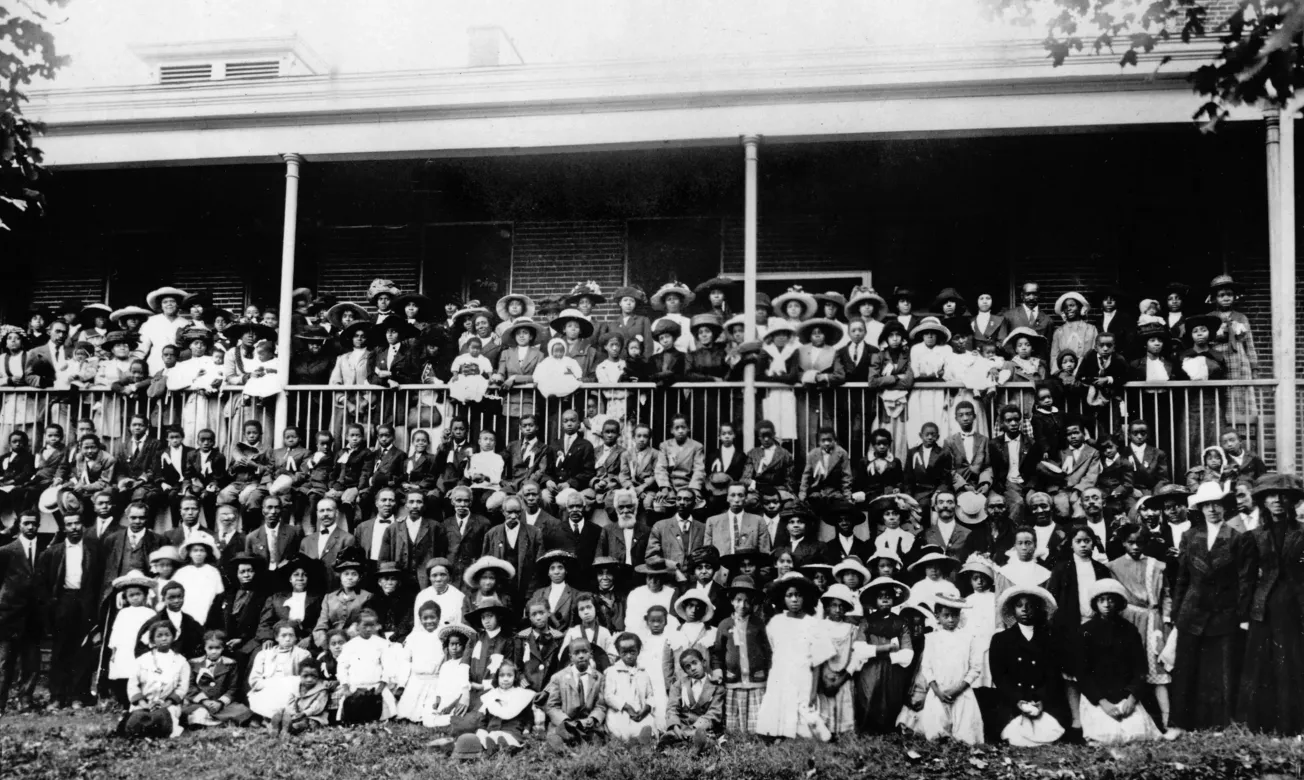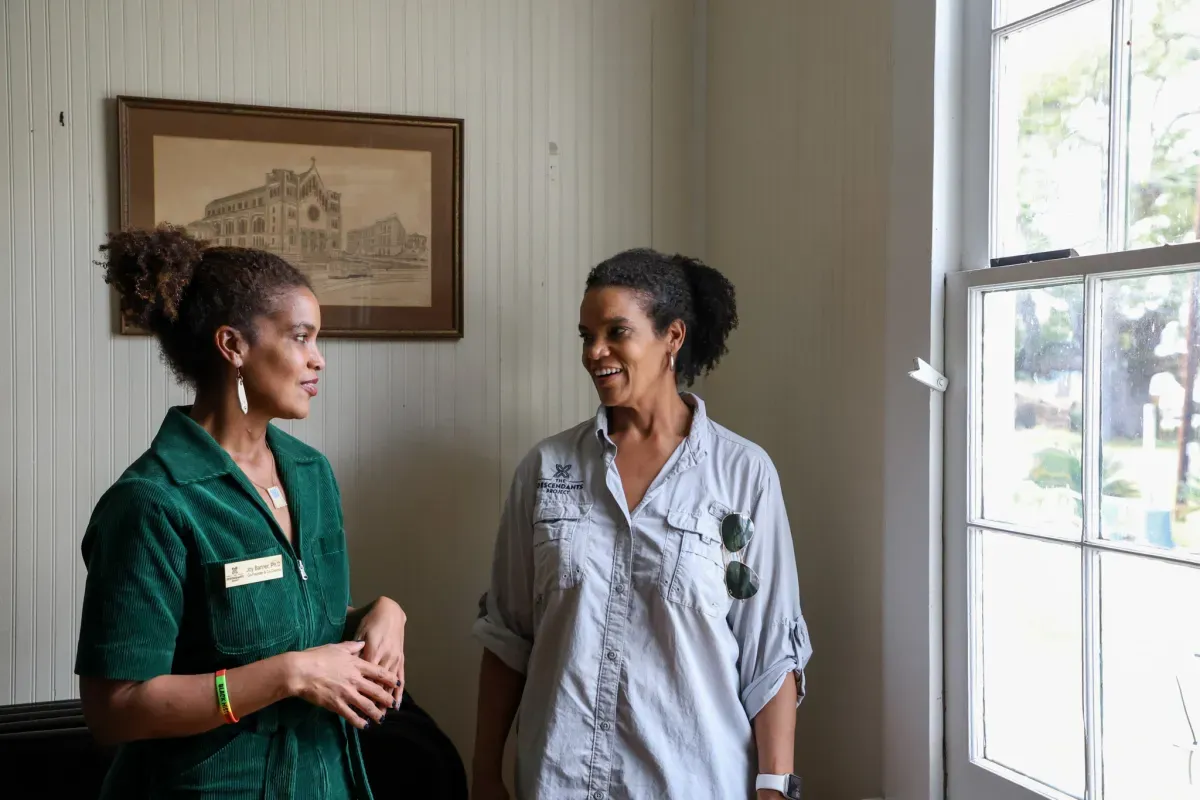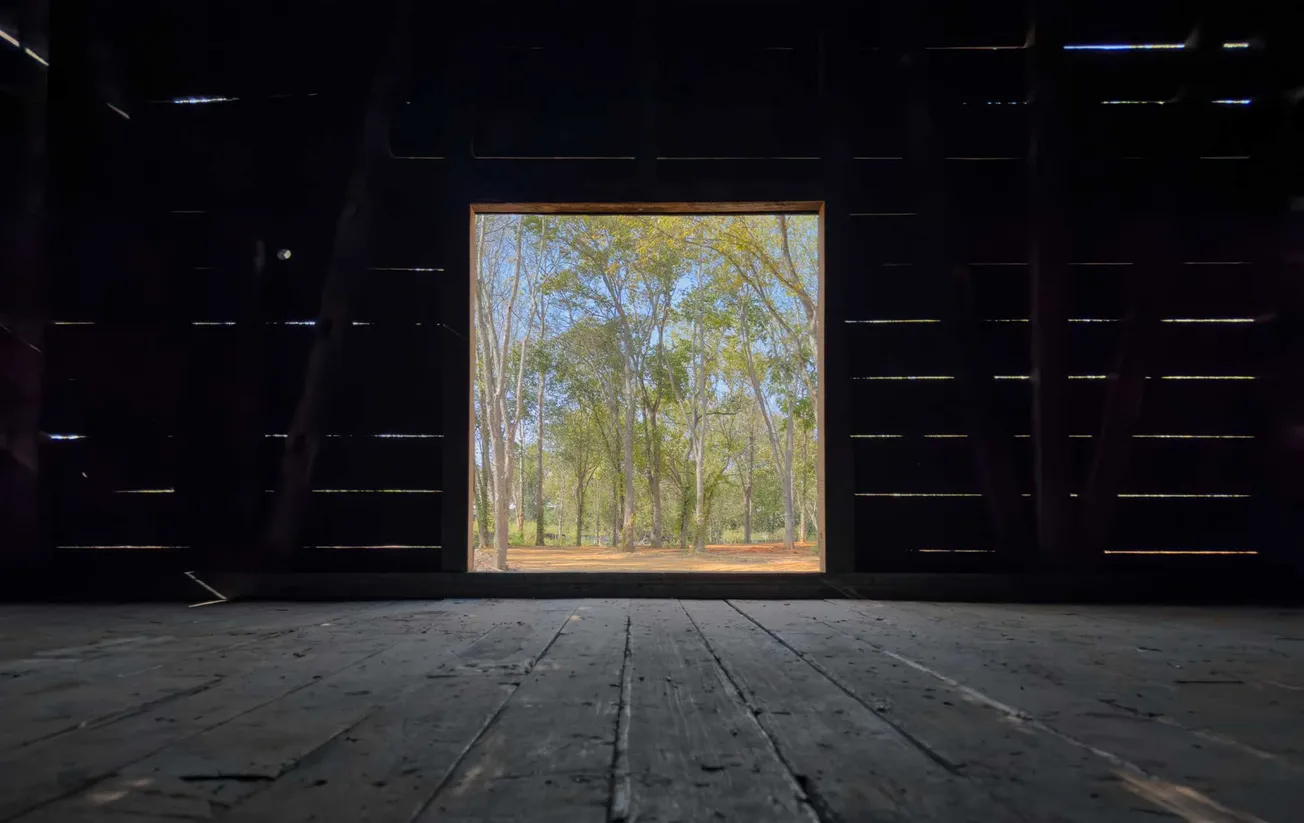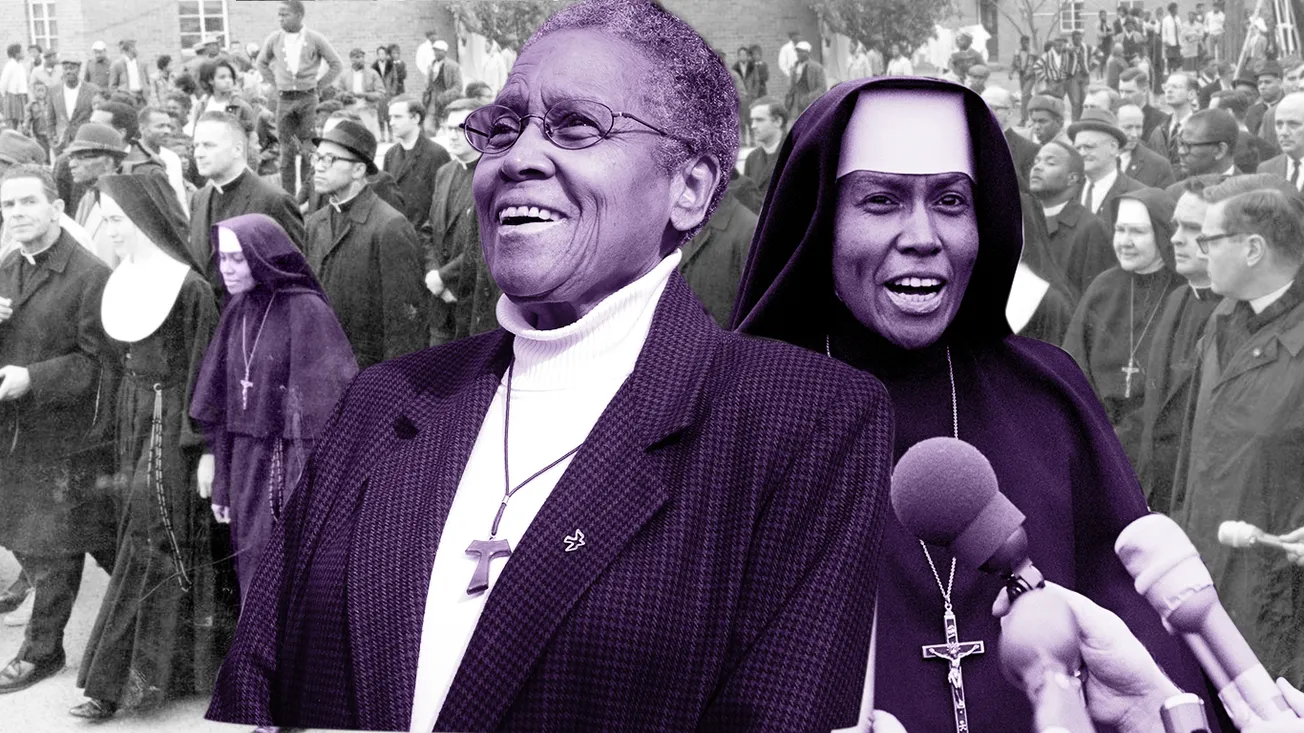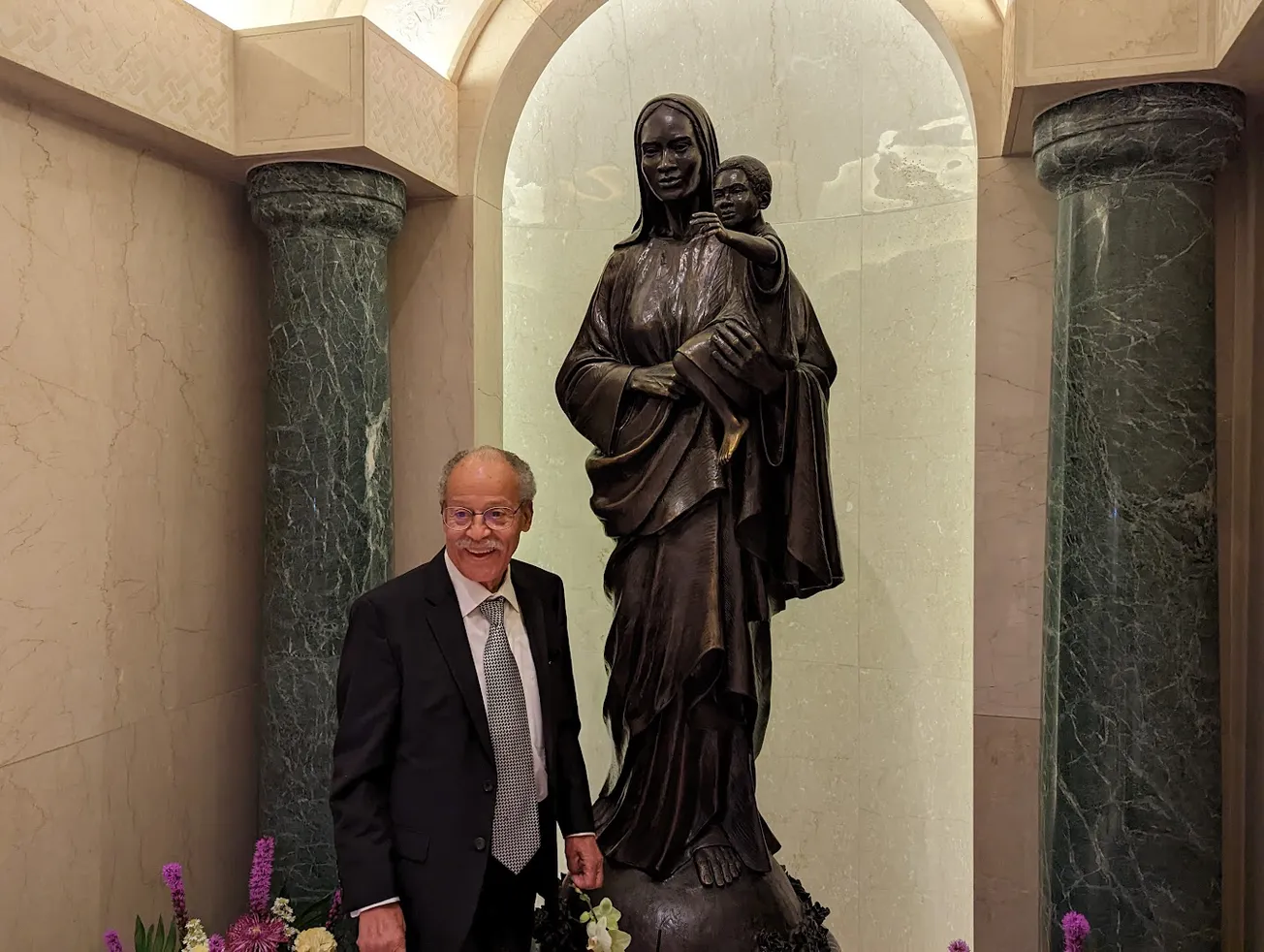The Sisters of Charity Federation (SCF) has issued a new letter acknowledging slaveholding by their founding congregations during the 19th century.
The federation, comprised of 14 communities of women religious descended from St Vincent de Paul, St Louise de Marillac, and St Elizabeth Ann Seton, released the info to members alongside a FAQ on February 7th—one day before the feast of St Josephine Bakhita, the patron saint of modern slavery victims.
“The original Sisters of Charity of St. Joseph’s, beginning with their founding by Elizabeth Ann Seton in 1809, and their successors, had some involvement with slavery until its cessation in the United States in 1865,” reads the letter, penned by SCF Executive Director Sr Grace Hartzog, SC and board chair Sr Catherine Mary Norris, DC.
“The historical fact-finding effort that we have undertaken was an important step in understanding and acknowledging our history.”
The incidents in question took place in Emmitsburg, Maryland (the founding place of Seton's Sisters of Charity of St. Joseph’s); New Orleans; and St. Louis, according to new archival research that began in 2019.
The letter notes that prior to 1865—when last chattel slaves were freed following the Emancipation Proclamation—both Seton’s community and St Vincent de Paul's Daughters of Charity owned individuals in the United States, and that the former also sold multiple slaves for profit.
(Seton, who died in 1821, had originally intended to move to France to join the Daughters founded by St Vincent, who died in 1660. She was unable, however, and later founded her Sisters on the Vincentian model. The federation joining the two traditions crystallized in 1965.)
The Sisters, whose exploits dominate the new report, also “benefited from the labor of” enslaved persons whom they did not own themselves, in all three of the states cited above.
For years, representatives connected to the SCF had acknowledged the possibility of slaveholding within their tradition, but only now is concrete evidence coming to light in a more full form.
The New York Times made waves in 2019 when it published an expose on slave-trading women religious and priests, authored by Rachel L. Swarns—herself a Black Catholic who had not known of the practice before she received a tip in 2016 concerning the Jesuits. (She published a story later that year on their infamous 1838 slave sale.)
In the 2019 NYT piece, Seton’s Sisters of Charity in Emmitsburg were noted specifically as offenders, with a former superior recorded as having OK’ed selling slaves in the late 1830s.
The Sisters of Charity of Nazareth, an SCF member based in Kentucky, were also shown in the story to have owned dozens of slaves, but they are not noted by the SCF as having participated in the new research. (They had announced their involvement in the slave trade several years before the NYT piece broke, and erected a monument in 2012.)
Dr. Shannen Dee Williams, a scholar of Black women religious, had in 2016 called on members of the Leadership Conference of Women Religious—in which SCF members are included—to more closely examine their historical ties to slavery and racism. That year’s conference, where Williams spoke, adopted the recommendation as one of their resolutions.
Last May, in an address during the National Catholic Education Association annual conference, Williams also went on record saying that St Seton—the first US-born person to be canonized, and the mother of the parochial school system—was herself a slaveholder.
The federation informed BCM at the time that archival consultations on the matter were ongoing, albeit hampered by the COVID-19 pandemic. That research was presumably connected to this month’s report.
Ultimately, the new letter from the SCF says “no new evidence” was found indicating that Seton ever owned a slave, confirming prior reports from academic historians. The fate of an enslaved person bequeathed to her by her grandfather, when she was was three years old, is unknown.
“Researchers, including Dr. Catherine O’Donnell, author of the 2018 book, ‘Elizabeth Seton: American Saint,’ believe that Brennus may have escaped during the American Revolution,” the letter reads.
The SCF did note, however, that a school Seton founded decades later knowingly received a tuition payment comprised in part from a slave sale.
The sisters say that research is ongoing concerning federation members’ histories, and that a monument will be erected in Emmitsburg honoring the individuals enslaved there roughly 175 years ago.
“Going forward, we will explore additional, meaningful, actions that will contribute to the work that must be done to bring about significant change,” the letter says.
The Jesuits, the largest religious order in the world, have received the brunt of the criticism in recent years concerning institutional Catholic slaveholding, and recently announced their establishment of a controversial $1B foundation supporting the descendants of those they enslaved.
The SCF’s new statement does not mention financial reparations, but does commit to an ongoing conversation, saying this month’s report is “by no means definitive”.
“Slavery is an indelible stain on our nation’s history and conscience that has permanent and painful repercussions, most profoundly for Black Americans,” they added.
“We believe that only by shining a light on difficult, shared truths can we truly move forward together in unity.”
Nate Tinner-Williams is co-founder and editor of Black Catholic Messenger, a seminarian with the Josephites, and a ThM student with the Institute for Black Catholic Studies at Xavier University of Louisiana (XULA).


